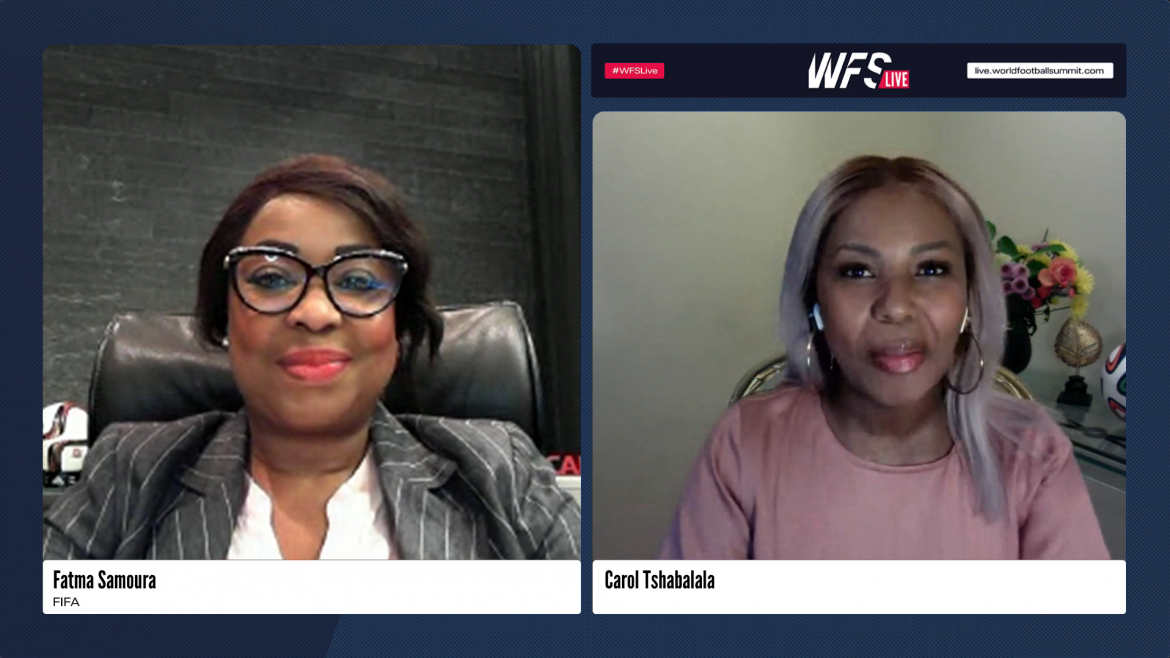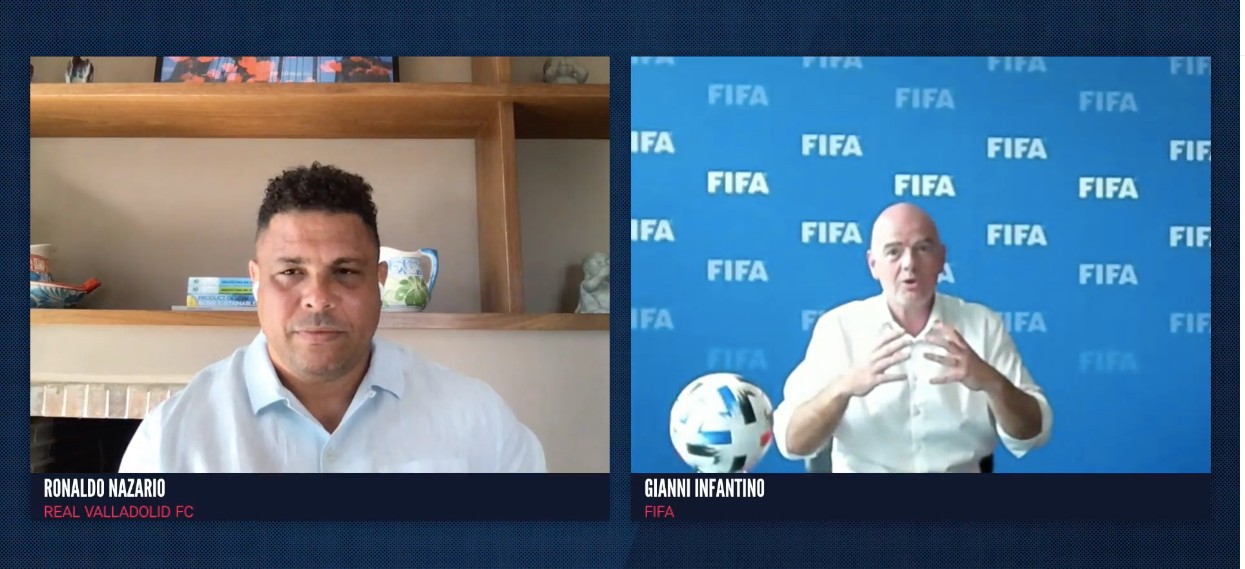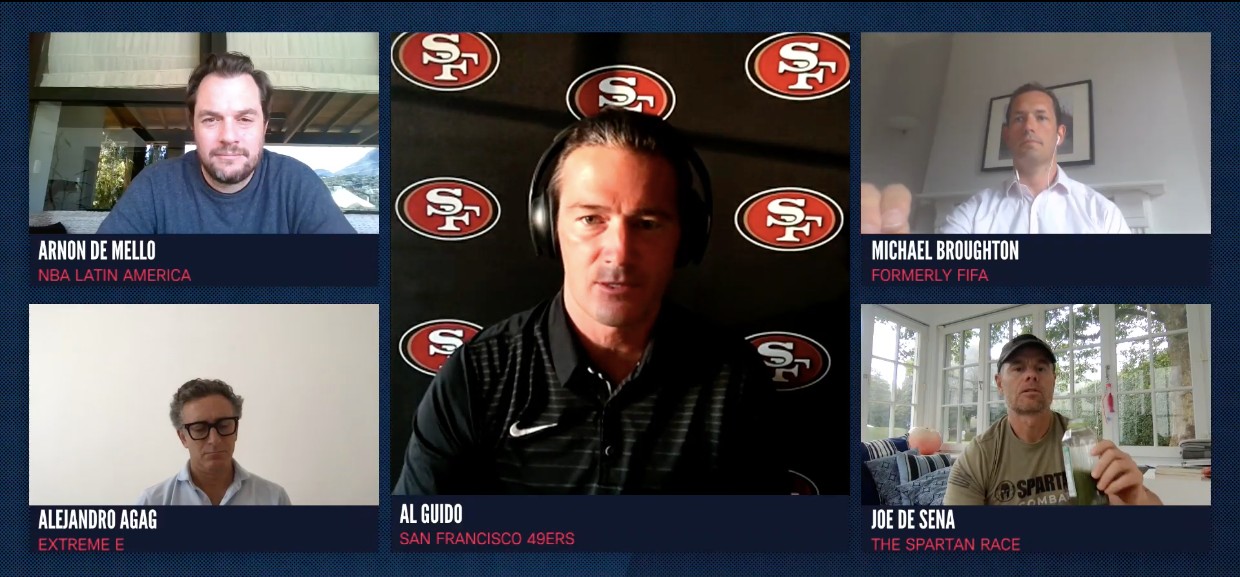At the closing session of WFS LIVE, FIFA secretary general Fatma Samoura shared insight into the fascinating journey that she’s gone through since being appointed by President Gianni Infantino, in what she described as a game-changing decision taken by a “football visionary”, and discussed some of the most significant changes that football’s governing body has experienced under his leadership.
In a Q&A session conducted by South African sports broadcaster Carol Tshabalala, Mrs. Samoura discussed FIFA’s “ground-breaking” Covid-19 Relief Plan, which according to her “has allowed some normality to come back to football”, and elaborated on the main pillars of FIFA’s vision for 2020-30.
This panel brought to an end the fifth and final day of the second edition of WFS LIVE, a digital conference that over the past week has brought together 150 speakers and over 2,000 attendees from across the globe.




